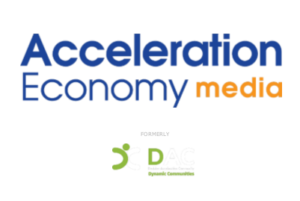AI Agent & Copilot Podcast: Financial Software Firm Finastra Cuts Months Off Content Creation Process
Welcome to the AI Copilot Podcast, analyzing the latest AI Copilot and agent developments from Microsoft and its partners, delving into customer use cases, and exploring how AI plus the Cloud helps customers reimagine their business. In this episode, Tom Smith speaks with Joerg Klueckmann, head of corporate marketing and communications at the European financial software firm Finastra about its Copilot usage.
Highlights
Content Creation and Future Use Cases (01:56)
Finastra used Copilot to develop a marketing campaign around the Open Financemovement. Instead of gathering a group of writers and executing a content development plan, the company used 50 interviews as the basis for a content repository. A user might ask Copilot to draft a content asset that answers questions such as “What are the most common use cases for Open Finance” or “How can risk be mitigated with Open Finance.”
The content development process for this campaign in the old model would have taken 6 to 9 months; with Copilot, it took under two months. Finastra wanted toestablish itself as an influencer, in part by getting assets in the market quickly. “There are literally hundreds of assets being produced based on that repository…that we can push out on all relevant channels,” Klueckmann says.
To date, the repository has enabled creation of 20+ web pages, eight e-books, 20 videos, and hundreds of social media assets. “I’ve got the best team in the world and a good budget as well, don’t get me wrong, but it would not have been enough to produce that amount of content, and relevant content, in such a short period of time.”
In the future, Copilots will democratize tools that previously required expertise (think Salesforce or Microsoft PowerBI, for instance).
CEO Push and Employee Impact (14:24)
Finastra CEO Simon Paris ensured Finastra was an early AI adopter. “We pushed all of our 8,000 employees through intense AI onboarding. We had three different certifications that each and every one had to take to understand the potential, to understand the risk, and everything around it.”
Klueckmann notes the importance of regular use of Copilots and making it part of your work. “If you don’t do it…you have to cope with the fact that others that use it will be faster and smarter and better.” Employees that gain access to copilot technology at their jobs won’t consider going to other companies that don’t use AI, he says.
More Copilot Conversations:
- Dow Exec Details Copilot Productivity Gains, Future Use Cases
- IBM Exec on ‘Experience Zones’ Featuring Microsoft AI Tech


